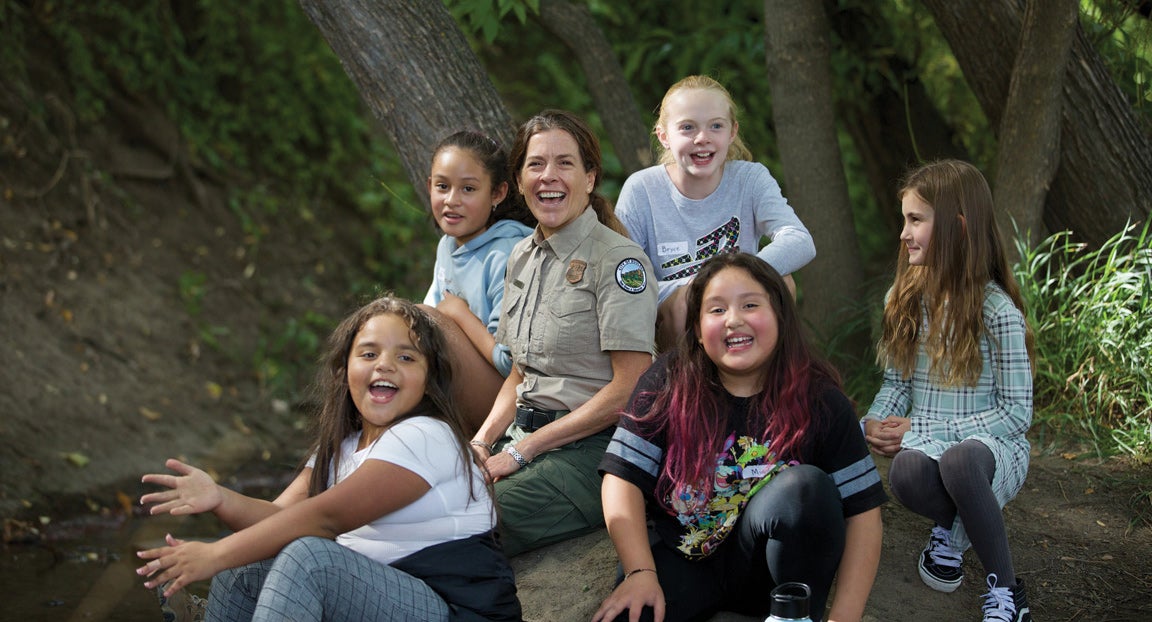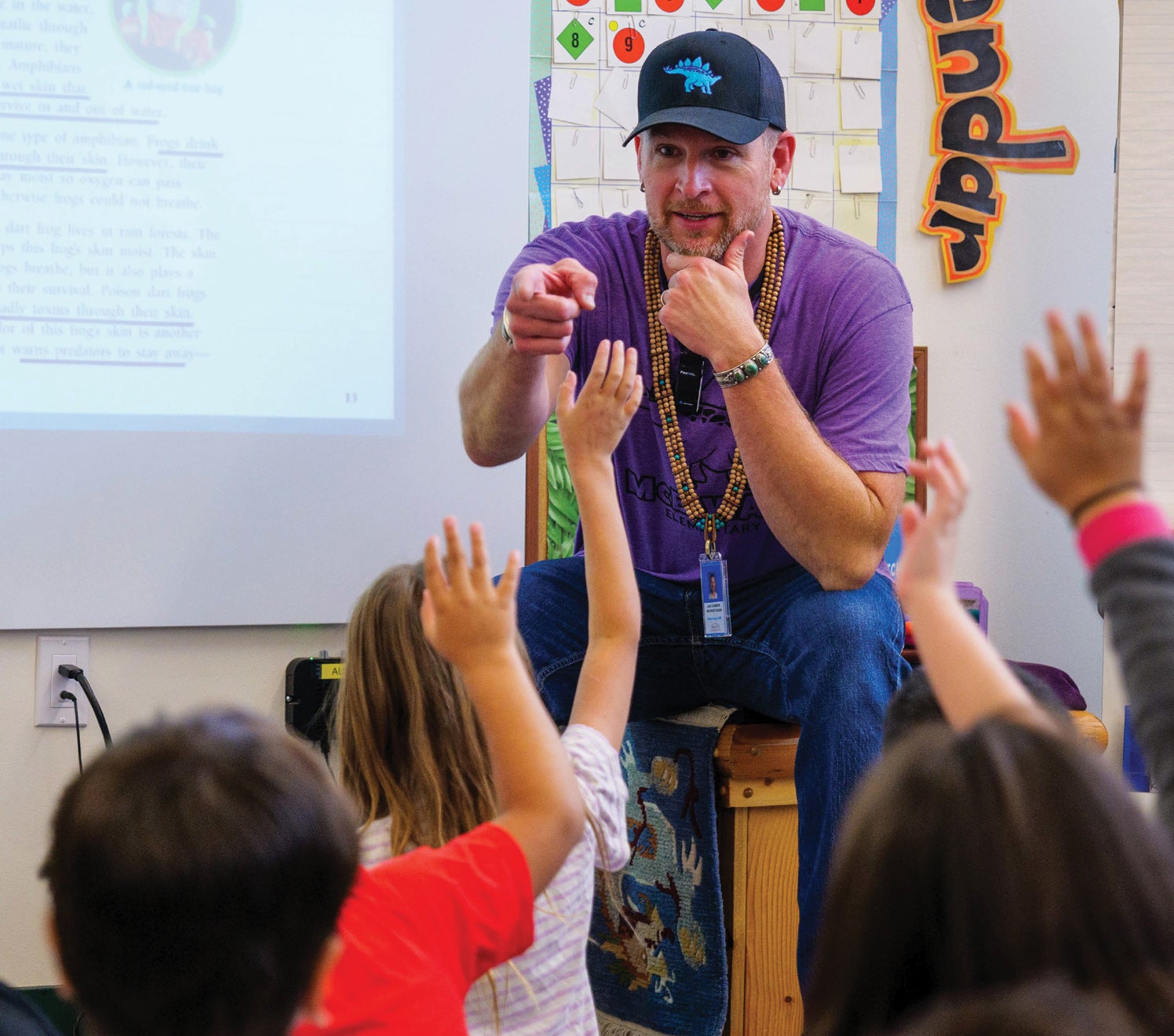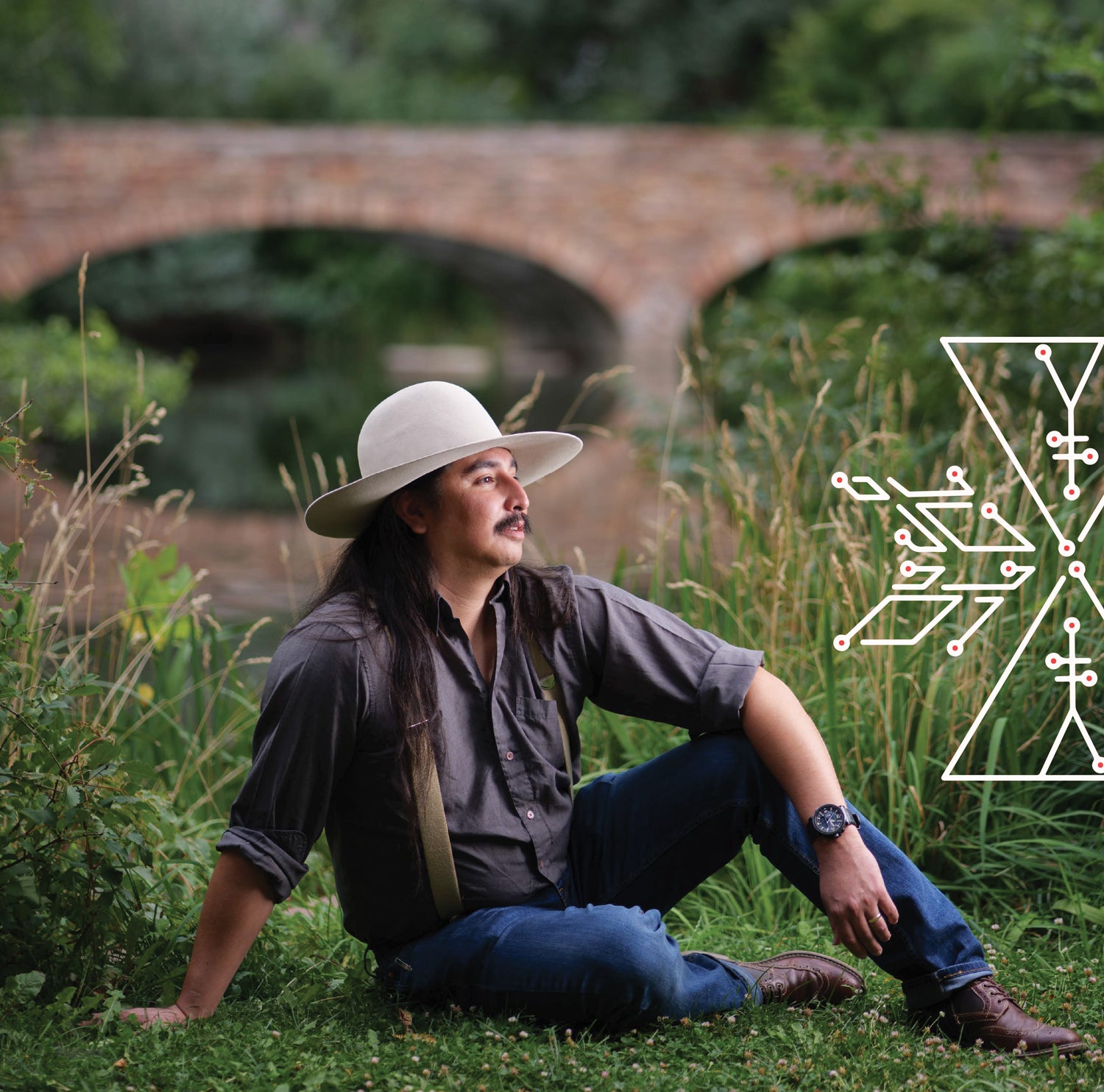Meeting the Moment
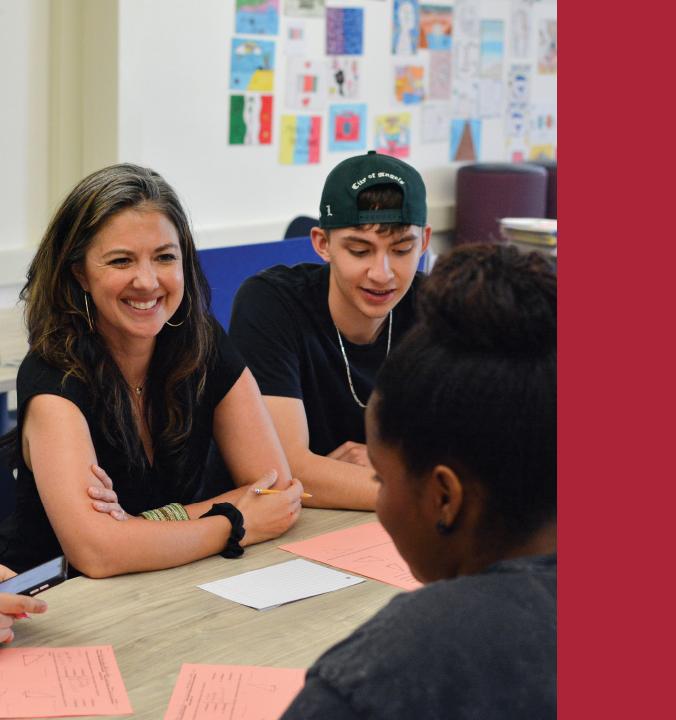
This is our opportunity to do right by young people by treating them humanely and providing them with school environments that are sanctuaries."
- Adria Padilla-Chavez
How educators are addressing the needs of “newcomer” students
Adria Padilla-Chavez’s classroom at Thornton High School in the Denver suburbs reveals, in many ways, the changing face of Colorado and many other parts of the country.
Padilla-Chavez, a doctoral student in the School of Education at CU Boulder, teaches in the Adams 12 Five Star Schools’ Newcomer Center, which launched in fall 2023. It’s a one-year program for students who have just arrived in the United States.
International flags line the classroom walls, and signs read “You are welcome here” in multiple languages. Muslim students, many of whom settled in or around Thornton as refugees from Afghanistan, often greet Padilla-Chavez, who speaks Spanish, with “¿Cómo estás?” Students from Venezuela and Colombia, meanwhile, have learned about fasting for Ramadan. “Many of them have left so much of their family behind,” Padilla-Chavez said. “So, we’ve cultivated a really beautiful community where they’ve become each other’s family.”
In Colorado, that community is growing larger.
Over the past school year, districts across the state enrolled thousands of children who were new to the United States—many of them from Central and South America. By April, Denver Public Schools’ superintendent, himself a child of immigrants, estimated that the district alone had opened its doors to more than 3,500 newcomers and that “meeting the moment” was a moral imperative. By the end of the school year, Colorado lawmakers passed a bill appropriating one-time funds to schools that enrolled newly arrived students after the pupil enrollment count date in October—an important relief measure that came after day-to-day strains in classrooms.
Silvia Noguerón-Liu is an associate professor of literacy studies. She said that throughout Colorado, many teachers were already buckling under the strain of overseeing large class sizes and tailoring their instruction to students with different needs. In her own recent visits to classrooms, she noticed that teachers were managing even more concerns.
“We got a lot of new arrivals in the winter when the school year had already begun,” she said. “It’s really cold. They need winter clothing. They need to learn how to handle snow, how the school system works, what happens every day.”
Noguerón-Liu spearheads a group of faculty members and students from the School of Education who are helping local educators meet the needs of these newcomers. They’re developing educational resources to assist teachers in communicating with students who are learning English and navigating U.S. culture and schools. At the same time, Noguerón-Liu acknowledges that teachers need more support as they contend with a multitude of challenges—such as how to take care of their own mental health while working with youth who have experienced trauma.
With the new school year underway, she and her colleagues urge teachers to see newcomer students as an opportunity to enrich public education in Colorado for all students.
Observed Padilla-Chavez, “This is our opportunity to do right by young people by treating them humanely and providing them with school environments that are sanctuaries.”
42,000 +
migrants have been served
by Denver since December 2022, according to the
city's newcomer and migrant support program
3,500 +
migrant students were enrolled in
Denver schools in the
2023-24 school year,
most after the census date
in October.
Electric spaces
Tania Hogan, executive director of the BUENO Center for Multicultural Education in the School of Education, sees herself in the newcomer students. She was 5 years old when her family moved from Acapulco, Mexico, to the suburbs of Philadelphia.
Hogan was a painfully shy child, and at school she tried everything she could to hide the fact that she couldn’t speak English: She rarely talked in class and learned how to mimic what other kids were doing.
It wasn’t until fourth grade that one of Hogan’s teachers, Mr. Phillips, took an interest in her. He encouraged her to read and wrote her motivating letters, which he continued to do even after Hogan’s family moved out of state.
The term "newcomers" refers to K-12 students born outside the United States who arrived in the country in the past three years, according to the U.S. department of education.
The goal of newcomer centers is to accelerate students' acquisition of language and skills to orient them to the U.S. and its schools, according to the Colorado Department of Education. Typically, students attend these programs before they enter more traditional interventions (e.g., English-language development programs or mainstream classrooms with supplemental English Language Learner Instruction). The newcomer center can take place within a school or at a separate site.
“I learned to read in his class and became obsessed with reading,” Hogan said. “I could not put books down after that.”
She wants teachers to know that, like her as a child, newcomer students bring a lot of strengths and knowledge with them.
“They have so many assets already present,” Hogan said. “People often assume newcomer students are coming in as blank slates, but that’s not true. As educators, it’s our job to figure out their hidden talents and build on them.”
Padilla-Chavez said that one of her students is a master fisherman, and others are experts at trading goods in a crowded market.
“The desire to learn within the newcomer center is electric,” she said. “They have knowledge systems and experiences beyond what the U.S. school system can imagine or even measure.”
Deena Gumina, an assistant teaching professor in the School of Education, is careful to emphasize that newcomer students often get pulled into political debates about immigration. But in its 1982 decision in Plyler v. Doe, the U.S. Supreme Court ruled that all children, regardless of their immigration status, have a right to a public education. She added that universities like CU Boulder can help schools answer that challenge by recruiting and preparing more bilingual teachers.
“It has always been our job as educators to work with the students who show up in our school spaces,” Gumina said.
Migration stories
In early January 2024, as Noguerón-Liu was in the middle of her winter break, she started noticing new arrivals in the schools she was visiting. She heard the same thing from a few teacher candidates studying at CU Boulder. In their junior and senior years, these students work in K-12 classrooms under the guidance of coaches from the university and professional educators.
Noguerón-Liu dashed off emails to colleagues at CU Boulder, and, within a few days, they had formed an informal team with a timely goal: to help teachers keep pace with the changes in their classrooms.
“We came back from vacation and a group of us who work in elementary education got together to discuss how we can support our student teachers,” Noguerón-Liu said.
The team identified several strategies that teachers— even those who are not bilingual—can implement in their classrooms almost immediately. Noguerón-Liu and her colleagues have developed guides, for example, to lay out sounds that are similar and different in English and Spanish. Words with a “th” sound, as in “this” or “thin,” for instance, can be tricky for nonnative speakers.
Other needs run much deeper. Hogan said that the BUENO Center is collaborating with Denver Public Schools to develop a curriculum for newcomer students—a comprehensive guide to help young people transition to the U.S. educational system. She also leads a team that recently received a New Frontiers planning phase grant—one of just four campuswide—from the CU Boulder Research and Innovation Office. Over the next year, the researchers will meet with families new to the United States, inviting them to share their expertise and stories of migration and survival. The team will then use artificial intelligence tools to transform that knowledge into culturally sustaining, STEAM-focused (Science Technology Engineering Arts Math) learning models that teachers can use in their classrooms. Hogan hopes these resources will help educators foster deeper connections with newcomer students and enhance engagement.
“It’s about building on the knowledge that newcomer families bring with them, their community cultural wealth,” Hogan said. “We’re hoping that telling these stories might be a healing process for newcomers, as well.”
Coping with trauma
Vanessa Santiago Schwarz, an assistant teaching professor in the School of Education, has seen firsthand the joy that newcomer students can add to a community. Her daughters, who are in first and second grade, attend a bilingual elementary school in Denver. She said that one day, their school went on a lockdown, which luckily turned out to be a false alarm. During those scary hours, an older girl whose family had arrived in the United States that winter from Venezuela comforted Santiago Schwarz’s younger daughter.
“She was just there with my daughter, holding her and comforting her, even though she didn’t know what was going on,” said Santiago Schwarz, who coaches CU Boulder students during their teaching experiences.
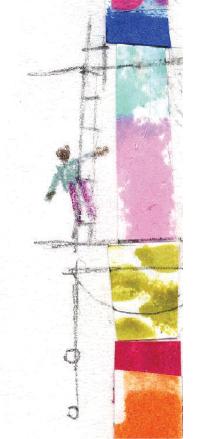
Santiago Schwarz understands that many new arrivals have experienced incredible hardships, both in their home countries and during their journeys north. That trauma can “spill over” onto teachers who care deeply about their students—and who often feel helpless as children contend with huge, systemic problems like homelessness, hunger and more. Teachers and students alike need more resources for their mental health, she said.
Gumina, who also coaches undergraduate teaching students, agrees. She and Santiago Schwarz often counsel students to take care of themselves and remind them that teachers can’t solve every problem in the world.
“There’s often this expectation of martyrdom from teachers, that saying ’no’ or setting boundaries is saying ’no’ to the children,” Gumina said. “I tell my teacher candidates that if you can’t take care of yourself, you can’t show up for your students. If you have eight days of PTO for the year, you should take them.”
Hogan added that her own experiences show the difference a single compassionate teacher can make in a child’s life. When she became a teacher at a bilingual school in Denver in 2000, she remembered how Mr. Phillips had connected to her through writing letters. She started writing letters to her own students, and they wrote back, sometimes about big things in their lives and other times about everyday things, like the famed Portuguese soccer player Cristiano Ronaldo.
“I wanted to be that person for all of my kids because (Mr. Philips) was so inspirational for me,” Hogan said.
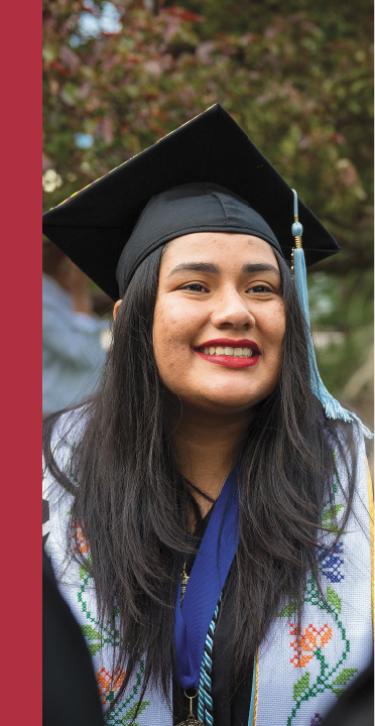
Beautiful Opportunities: Alumna educator embraces newcomers
Teaching was not on Jessica Valadez Fraire’s radar. Her schooling experiences were “isolating and difficult” as a Brown bilingual student growing up in largely white, affluent Boulder.
When she was a student at CU Boulder, an assigned podcast about the absence but importance of culturally diverse curriculum, particularly for elementary students, opened her eyes to new possibilities.
“I was like, ’Dang, should I be a teacher?’ It was an epiphany for me.
She cautiously changed her major to elementary education and found her “perfect path.” When the path led to student teaching in Denver last spring, Valadez Fraire experienced firsthand the unprecedented wave of newcomer students enrolling in local schools, which shifted needs in her classroom. Some legislators and the media labeled the influx a “crisis,” but Valadez Fraire sees it differently.
“As a teacher, it’s been difficult to plan and meet the needs for all my students, because a lot of my students are coming to school with trauma and difficult circumstances in their lives. But it’s also been very beautiful to bring in culturally sustaining approaches, allowing them to have more agency and seeing them empowered in the classroom.”
Valadez Fraire infused her students’ cultures into her lessons—for example, an astronomy lesson featured South American ancient wisdom about the solar system and earth sciences.
“Students can see themselves as scientists and mathematicians. I noticed they were more engaged because the lesson had something to do with their identities. It was cool.”
Teaching this way was not easy. Valadez Fraire leaned on School of Education coaches, and her supportive friends and family helped her navigate challenges and prepare to enter the mostly white teaching profession.
Valadez Fraire, who graduated last spring, is poised to create the classroom she needed as a youth.
“I think it’s super important for students to have teachers who look like them, who speak their language and who care about their development as people. That’s how I see education—a tool for students to negotiate their world and create a better world.”
Discover more stories from Voices vol. 7:
Classrooms for Climate Change
How kids and alumni educators are leading local climate-justice initiatives.
Power of Community
Teacher of the year reflects on how to uplift one another and push through challenges.
Cracking the Code
Ian Her Many Horses is creating novel spaces for Indigenous students to explore computer science


